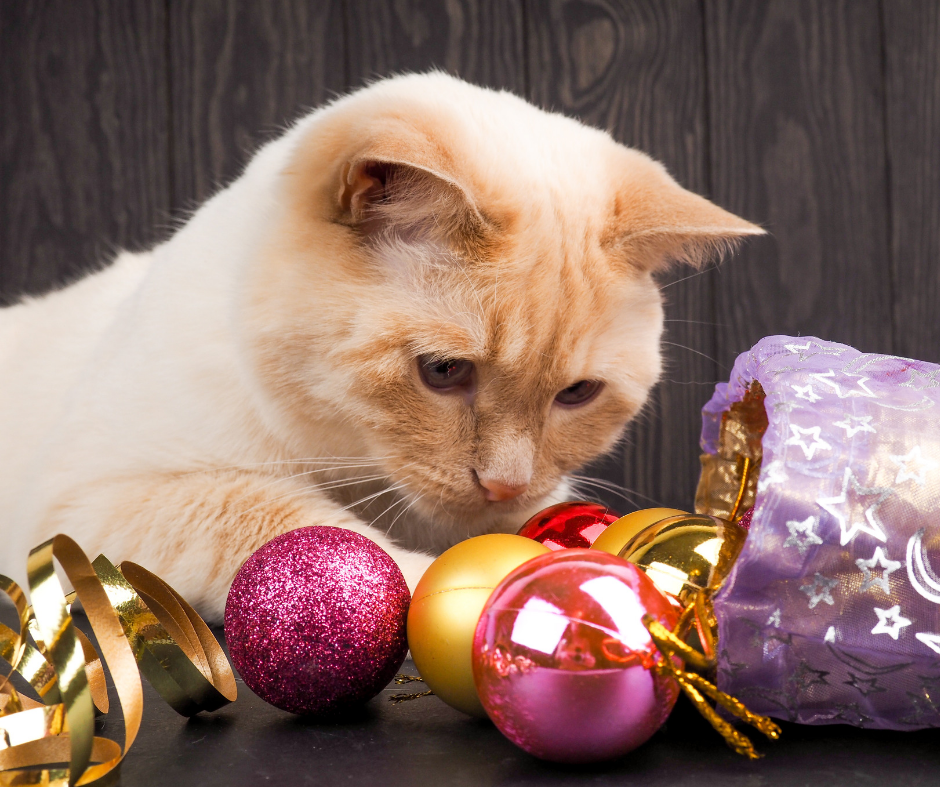
Halloween Candy Safety for Pets
October 29, 2018
Cat Safety This Holiday Season
December 3, 2018Cats are incredibly independent and low maintenance, but like all pets, are at risk for health issues too. As with most things health related, prevention is the name of the game so that a single health issue doesn’t lead to problems in other areas as well. Annual check ups are necessary to ensure that your kitty remains happy, healthy, and lives a long life.
Beware of Tooth Decay
You can expect to see problems with your cat’s teeth more than anywhere else in their anatomy. If periodontal disease in felines is left untreated, it’s common for painful abscesses to form, as well as infection of the bone and the surrounding tissue. When bacteria from the mouth escapes into the bloodstream, it has the possibility of travelling to the heart and kidneys. Gingivitis, or swelling of the gums is also quite painful, so it is possible for weight loss to become an issue if your cat refuses to eat over a course of several weeks or months.
Something that many cat owners don’t anticipate, are “resorptive lesions.” A resorptive lesion occurs when a tooth begins to erode and break down, about 20 to 60 percent of cats experience this problem. This generally requires oral surgery or cleaning for which your cat will need to be anesthetized.
There are Other Reasons for Weight Loss
A small amount of weight loss could be normal due to age, but it could also indicate other issues such as hyperthyroidism or inflammatory bowel disease. These health concerns are fairly common in senior cats, but you might not notice them right away because of how slowly the decline in their weight occurs. Annual check ups are a sure way to pick up on a pound or two loss that you wouldn’t normally notice.
Watch Out for Food Allergies
Most likely your cat could eat anything when they were young and resilient, but as they mature certain foods may not agree with her. More and more, low carb, limited ingredient or fresh diets are being recommended for cats to prevent skin, endocrine, and digestive issues. Regular kibble is high in carbs and low in fluid content which can contribute to diabetes, kidney disease and dental problems.
Domesticated cats and felines in general have exceptionally higher protein needs than other animals. Canines are omnivorous, meaning they can survive on a combination of veggies and meat, while cats require an amino acid called taurine, which can only be found in meat. As true carnivores, cats need a diet that is high in fresh animal proteins, and low in carbohydrates.
Cardiovascular Health
Heart disease is a common ailment among felines, specifically hypertrophic cardiomyopathy. This condition makes it more difficult for the hart to pump blood adequately, resulting in poor circulation to the brain and other major organs.
While, unfortunately, many adult cats are diagnosed with cardiomyopathy, the underlying cause is often very treatable (like in the case of hyperthyroidism).
Nail Care Should Be More Frequent
You’re probably used to having your cat’s nails trimmed or trim them yourself if they allow it, every few weeks or so. Older cats begin to grow much thicker nails, but they’re brittle and more prone to breaks and snags. Senior cats can’t retract their nails as easily either, so may become overgrown and start to curl into the paws if a regular trimming is neglected.
So, How Often are Cats Really Required to See a Vet?
Veterinarians recommend annual exams until cats grow to be about 10 years of age. Afterward, every six months; keep in mind that these are recommendations for healthy cats with no serious health concerns. Felines with illnesses like diabetes and other permanent issues may need to see a veterinarian more often.
While cats are tough, resilient creatures, they still need regular, proactive medical care and prevention. As they tend to be quiet, stoic pets, they aren’t as vocal about their aches and pains as canines are. It pays to get an appointment for your cat’s annual checkup on the calendar!

